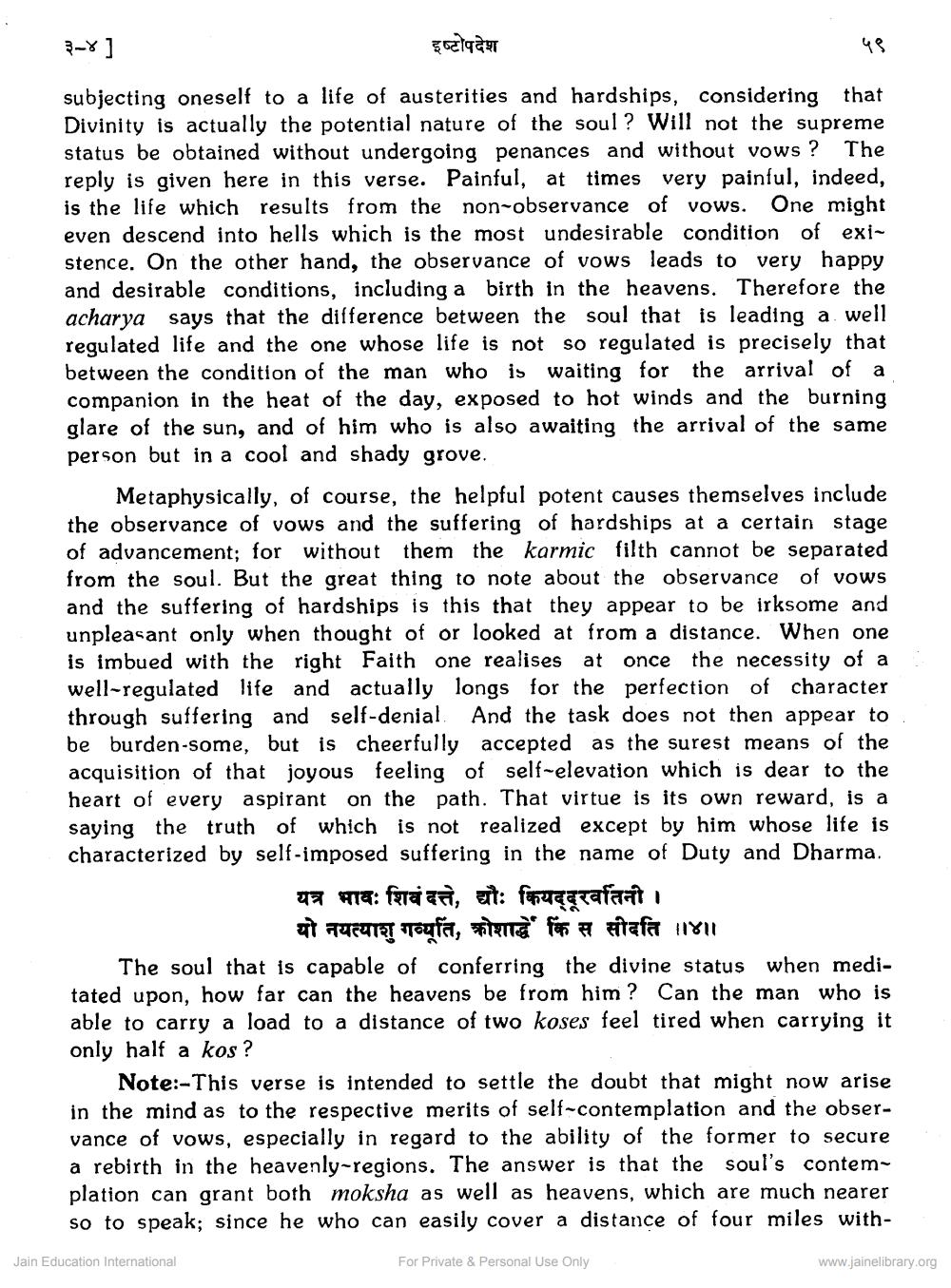________________
३-४ ]
इष्टोपदेश
subjecting oneself to a life of austerities and hardships, considering that Divinity is actually the potential nature of the soul? Will not the supreme status be obtained without undergoing penances and without vows? The reply is given here in this verse. Painful, at times very painful, indeed, is the life which results from the non-observance of vows. One might even descend into hells which is the most undesirable condition of extstence. On the other hand, the observance of vows leads to very happy and desirable conditions, including a birth in the heavens. Therefore the acharya says that the difference between the soul that is leading a well regulated life and the one whose life is not so regulated is precisely that between the condition of the man who is waiting for the arrival of a companion in the heat of the day, exposed to hot winds and the burning glare of the sun, and of him who is also awaiting the arrival of the same person but in a cool and shady grove.
५९
Metaphysically, of course, the helpful potent causes themselves include the observance of vows and the suffering of hardships at a certain stage of advancement; for without them the karmic filth cannot be separated from the soul. But the great thing to note about the observance of vows and the suffering of hardships is this that they appear to be irksome and unpleasant only when thought of or looked at from a distance. When one is imbued with the right Faith one realises at once the necessity of a well-regulated life and actually longs for the perfection of character through suffering and self-denial And the task does not then appear to be burden-some, but is cheerfully accepted as the surest means of the acquisition of that joyous feeling of self-elevation which is dear to the heart of every aspirant on the path. That virtue is its own reward, is a saying the truth of which is not realized except by him whose life is characterized by self-imposed suffering in the name of Duty and Dharma.
यत्र भावः शिवं दत्ते, द्यौः कियद्दूरवर्तिनी ।
यो नयत्याशु गति, कोशाद्धे किस सीदति ॥४॥
The soul that is capable of conferring the divine status when meditated upon, how far can the heavens be from him? Can the man who is able to carry a load to a distance of two koses feel tired when carrying it only half a kos?
Note:-This verse is intended to settle the doubt that might now arise in the mind as to the respective merits of self-contemplation and the observance of vows, especially in regard to the ability of the former to secure. a rebirth in the heavenly-regions. The answer is that the soul's contemplation can grant both moksha as well as heavens, which are much nearer. so to speak; since he who can easily cover a distance of four miles with
Jain Education International
For Private & Personal Use Only
www.jainelibrary.org




